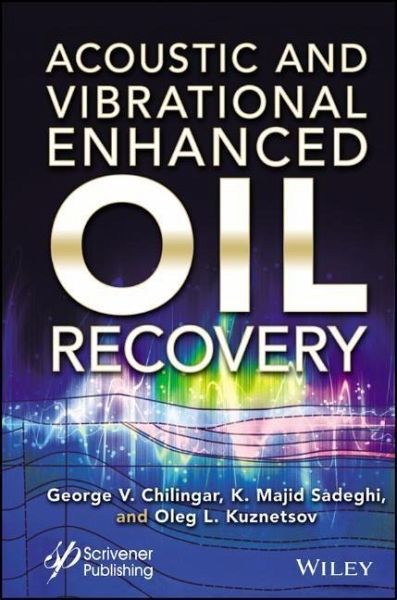
Acoustic and Vibrational Enhanced Oil Recovery
Versandkostenfrei!
Versandfertig in über 4 Wochen
199,99 €
inkl. MwSt.
Weitere Ausgaben:

PAYBACK Punkte
100 °P sammeln!
ACOUSTIC AND VIBRATIONAL ENHANCED OIL RECOVERYOil and gas is still a major energy source all over the world, and techniques like these, which are more environmentally friendly and inexpensive than many previous development and production technologies, are important for making fossil fuels more sustainable and less hazardous to the environment.Based on research they did in the 1970s in Russia and the United States, the authors discovered that oil rate production increased noticeably several days after the occurrence of an earthquake when the epicenter of the earthquake was located in the vicini...
ACOUSTIC AND VIBRATIONAL ENHANCED OIL RECOVERY
Oil and gas is still a major energy source all over the world, and techniques like these, which are more environmentally friendly and inexpensive than many previous development and production technologies, are important for making fossil fuels more sustainable and less hazardous to the environment.
Based on research they did in the 1970s in Russia and the United States, the authors discovered that oil rate production increased noticeably several days after the occurrence of an earthquake when the epicenter of the earthquake was located in the vicinity of the oil producing field. The increase in oil flow remained higher for a considerable period of time, and it led to a decade-long study both in the Russia and the US, which gradually focused on the use of acoustic/vibrational energy for enhanced oil recovery after reservoirs waterflooded. In the 1980s, they noticed in soil remediation studies that sonic energy applied to soil increases the rate of hydrocarbon removal and decreases the percentage of residual hydrocarbons. In the past several decades, the use of various seismic vibration techniques have been used in various countries and have resulted in incremental oil production.
This outstanding new volume validates results of vibro-stimulation tests for enhanced oil recovery, using powerful surface-based vibro-seismic sources. It proves that the rate of displacement of oil by water increases and the percentage of nonrecoverable residual oil decreases if vibro-energy is applied to the porous medium containing oil.
Audience:
Petroleum Engineers, Chemical Engineers, Earthquake and Energy engineers, Environmental Engineers, Geotechnical Engineers, Mining and Geological Engineers, Sustainability Engineers, Physicists, Chemists, Geologists, and other professionals working in this field
Oil and gas is still a major energy source all over the world, and techniques like these, which are more environmentally friendly and inexpensive than many previous development and production technologies, are important for making fossil fuels more sustainable and less hazardous to the environment.
Based on research they did in the 1970s in Russia and the United States, the authors discovered that oil rate production increased noticeably several days after the occurrence of an earthquake when the epicenter of the earthquake was located in the vicinity of the oil producing field. The increase in oil flow remained higher for a considerable period of time, and it led to a decade-long study both in the Russia and the US, which gradually focused on the use of acoustic/vibrational energy for enhanced oil recovery after reservoirs waterflooded. In the 1980s, they noticed in soil remediation studies that sonic energy applied to soil increases the rate of hydrocarbon removal and decreases the percentage of residual hydrocarbons. In the past several decades, the use of various seismic vibration techniques have been used in various countries and have resulted in incremental oil production.
This outstanding new volume validates results of vibro-stimulation tests for enhanced oil recovery, using powerful surface-based vibro-seismic sources. It proves that the rate of displacement of oil by water increases and the percentage of nonrecoverable residual oil decreases if vibro-energy is applied to the porous medium containing oil.
Audience:
Petroleum Engineers, Chemical Engineers, Earthquake and Energy engineers, Environmental Engineers, Geotechnical Engineers, Mining and Geological Engineers, Sustainability Engineers, Physicists, Chemists, Geologists, and other professionals working in this field



